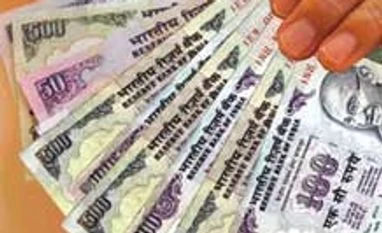The government is planning an independent office to manage the Centre's debt through an executive order till the time a proposed Bill is passed by Parliament.
The finance ministry is working on a Cabinet note for establishing a full-fledged Public Debt Management Office (PDMO), officials told Business Standard.
"It could be set up by an executive order till it becomes a statutory body," an official said.
More From This Section
In his interim Budget speech, Finance Minister P Chidambaram said following precedent, it was proposed to establish the non-statutory PDMA that could begin work in 2014-15. The Bill might come only after the Lok Sabha elections.
The government has a precedent to establish non-statutory bodies before it could be given powers from respective Acts.
The Pension Fund Regulatory and Development Authority (PFRDA) was established by the National Democratic Alliance government in 2003 through an executive order as a precursor to a statutory regulator. A Bill to give it a statutory powers was tabled by the United Progressive Alliance (UPA) government in 2005. After the Lok Sabha was dissolved in 2009, the Bill was again introduced in 2011 by the UPA II. PFRDA had continued to be a non-statutory interim regulator for around 10 years since 2003.
PDMO will be an autonomous government agency, which will act as the investment banker to the government and raises capital from the markets for the government.
It will formulate borrowing calendar for the government and decide upon the maturities of the securities to be issued on behalf of the government.
Currently, these are done by the Reserve Bank of India (RBI). The PDMO will work independent of RBI and will have no role in formulation of the monetary policy or setting interest rates.
It was primarily conflict of interest in RBI's role as a monetary authority and public debt manager that gave rise to the idea of independent PDMO. RBI mobilises funds for the government and at the same time also comes out with monetary stance which affects interest rates.
Developed economies such as the UK, the US and New Zealand, already have independent public debt offices in place.
"The office will give RBI more autonomy in matters of conduct of monetary policy," Bank of Baroda Chief Economist Rupa Rege-Nisture said.
However, she said whether PDMO conducts debt operations or RBI manages them, the government has to bring in more fiscal discipline. It is primarily to finance fiscal deficit that the government goes for borrowings. Currently, it is planning to narrow fiscal deficit by pruning plan expenditure. In fact, the government should cut more subsidies to bring it down, she said.
As a precursor to a full-fledged office, the finance ministry had set up a middle office in September, 2008. This would be merged into PDMO. Middle office formulates annual issuance strategy for government bonds as well as a long term management plans for these papers. It also develops and maintain a centralised database on government liabilities and disseminates debt related information to the public.
The middle office in the North Block and reports to the joint secretary, Budget in the finance ministry. However, full-fledged PDMO would be an independent body, but the administrative ministry will be the finance ministry.
Earlier, RBI had voiced its discontent on the proposed move of shifting debt management functions under its aegis to the North Block.
RBI Governor D Subbarao was against shifting DMO to the finance ministry because of human resources and manpower issues. The finance ministry has assured that all 21 public debt offices of RBI would continue to function as they are doing today, but they will function at the behest of DMO.
Subbarao had said only the central bank had the requisite expertise to manage market volatility, and an independent debt agency, driven by narrow objectives, would not be able to do so.
However, unlike his predecessor, incumbent RBI Governor Raghuram Rajan appears to be not opposed to shifting of DMO to the North Block.
)